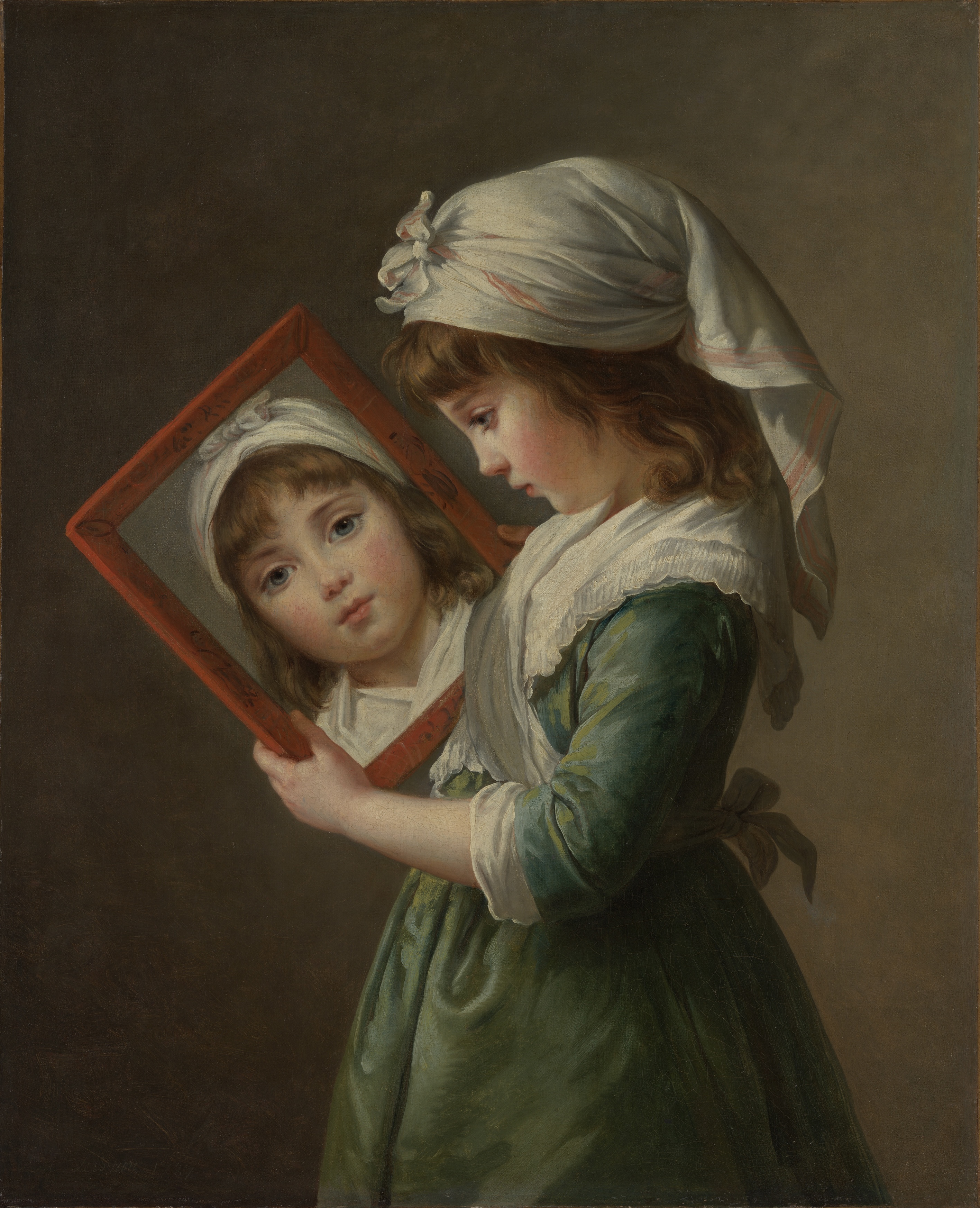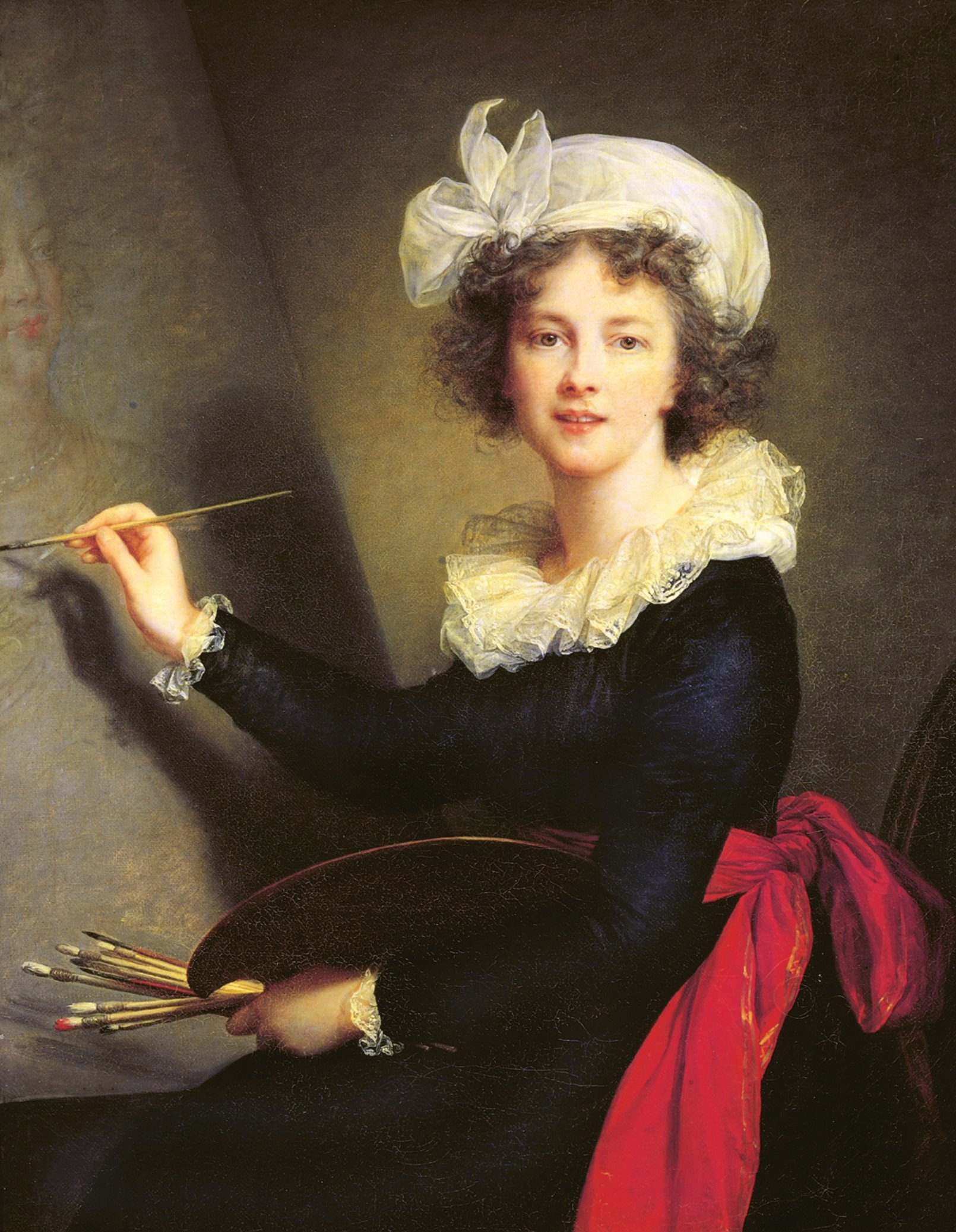During her lifetime, Vigée Le Brun was the most renowned female artist in France, keenly aware of the significance of self-presentation in the Parisian art world. In 1787, she submitted three portraits of her daughter, Julie, to the French Royal Academy’s Salon, including this one—an implicit acknowledgment that her creative abilities extended beyond motherhood. Julie appears both in profile and facing forward, thanks to the inclusion of a mirror. This intentionally improbable perspective creates a double image, referencing earlier artists' allegorical depictions of Sight and engaging with contemporary discussions on reality versus illusion in painting.
Julie, nicknamed Brunette, was the model of many of her mother's paintings. When her parents separated in 1789, Julie traveled with her mother. Early in life, she produced a number of pastels. Relations with her mother were strained from time to time, especially after her marriage to Gaëtan Bernard Nigris in 1799. The couple soon separated. Le Brun attempted to support herself with her art, appearing in 1811 under the name "Dlle Nigris" in an exhibit in the rue Saint-Lazare in Paris. She died at the age of 39 in 1819.
With this beautiful painting, we want to finish our celebrations of Women's History Month ... but it doesn't mean we won't feature any more paintings created by women artists. Of course, we will, always! :)
P.S. In our Women Artists 50 Postcards Set, you can find other portraits created by Élisabeth Vigée Le Brun :)
P.P.S. Many artists loved to depict their loved ones, especially their kids. Here are children painted by their famous mothers!


 Élisabeth Vigee Le Brun
Élisabeth Vigee Le Brun